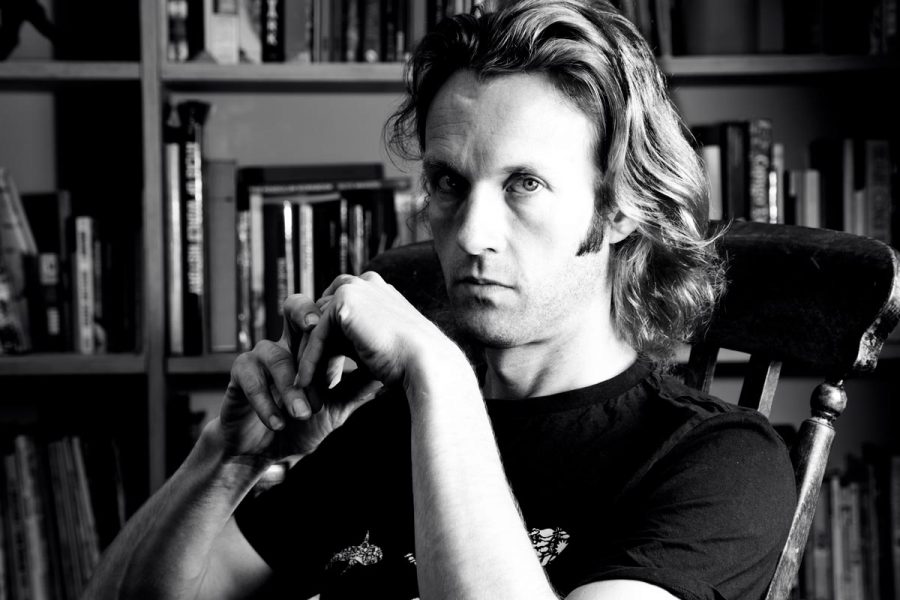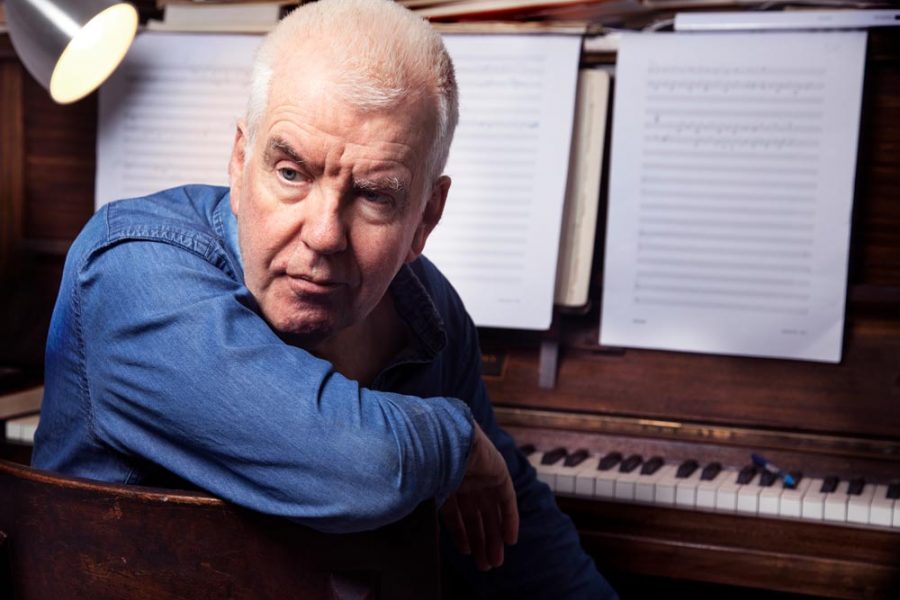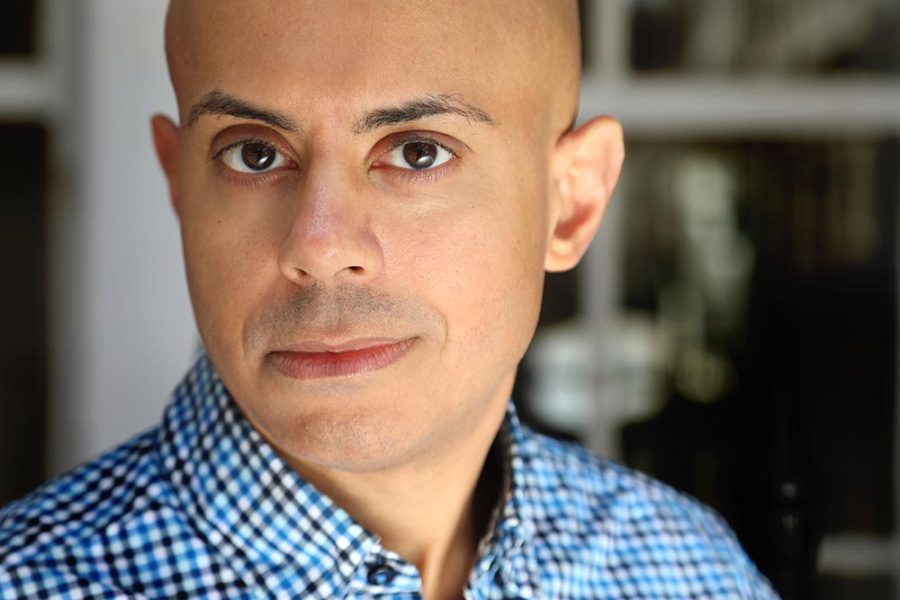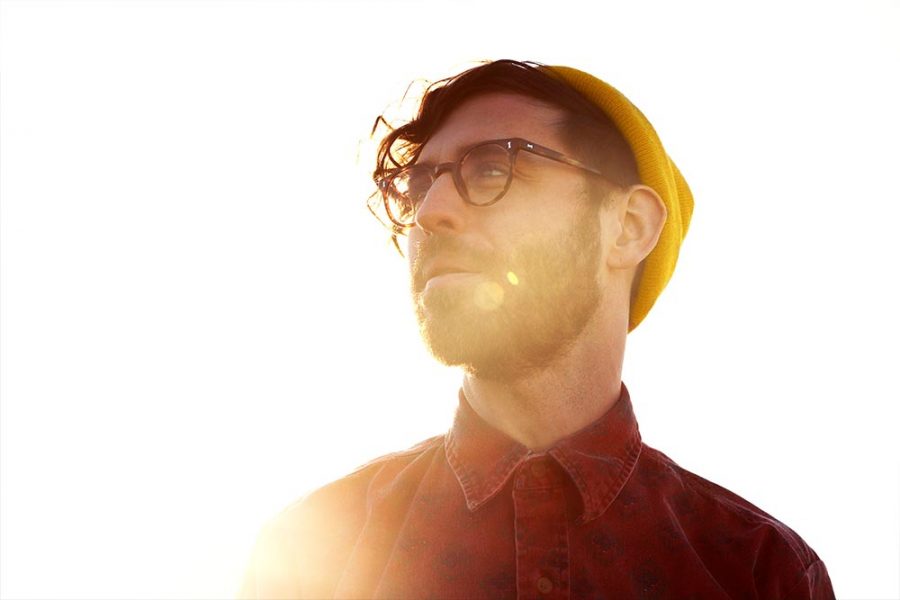Beyond the Manuscript: Seóirse Bodley

May 2015
Words by
Emer Nestor
Photos by
Frances Marshall
Internationally regarded as one of the foremost Irish composers of our time, Seóirse Bodley has remained a vibrant and valuable contributor to contemporary classical music and education since the 1950s.
As a musician, pedagogue, arranger, accompanist, adjudicator, broadcaster, conductor and writer, Bodley has kept his finger firmly on the pulse of the wider Arts sector. His legacy of compositions embraces a myriad of influences from Irish traditional music to the European avant-garde, extending across a variety of musical genres. Emeritus Professor in music at University College Dublin, Bodley holds the prestigious title of Saoi of Aosdána (Ireland’s academy for creative arts)’for singular and sustained distinction in the arts’. Numerous commissions include: the Second Symphony (I Have Loved the Lands of Ireland) by the Irish government to commemorate the centenary of Pádraic Pearse’s birth (1980); the Third Symphony (Ceol), for the opening of the National Concert Hall in Dublin (1980); the Fourth Symphony, for the Arturo Toscanini Symphony Orchestra of Parma, Italy (1990-1991); and Chiaroscuro for the AXA Dublin International Piano Competition [now the Dublin International Piano Competition] (2000). Bodley’s numerous awards include the Arts Council prize for composition (1956), the Macaulay Fellowship in Music Composition (1962), and the Marten Toonder Award (1982).
Bodley gives Final Note a glimpse into his student days in Dublin, and the world of music in which he inhabits today.
Probably the most striking for me was my first hearing of music by Alban Berg: extracts from his opera Wozzeck, conducted by Winfried Zillig."

Growing up in Dublin — what are your most enduring musical memories from this time?
I recall several things very strongly from my early days in Dublin. I had quite an attachment to the Georgian and post-Georgian buildings, which spoke to me strongly. I lived not far from the centre of the city and very quickly as I grew up, these buildings came to express for me the essence of Dublin itself.
Musically there were two attractions: the celebrity concerts (mainly celebrity pianists) in the Theatre Royal, and attending the symphony concerts in the Phoenix Hall. These last took place twice a week. You had to request the tickets in writing — but they were gratis. The conductors had a free hand in the choice of music, and as a result you heard much new music from various countries. Probably the most striking for me was my first hearing of music by Alban Berg: extracts from his opera Wozzeck, conducted by Winfried Zillig.
Can you remember the first record or concert performance that resonated with you as a child?
A record that I bought early on was of a performance of Granados’s ‘The Maiden and the Nightingale’, sung in Spanish by Vittoria de los Angeles — superb singing that I really enjoyed! A concert performance that really overwhelmed me was my first hearing of Dvořák’s New World Symphony. The clarity of the music’s expression resonated with me long after hearing it.
What can you remember about your piano lessons at the Royal Irish Academy of Music — did you want to become a concert pianist?
The piano lessons at the RIAM were with Dina Copeman. She was quite a hard taskmaster. Yes, I did have designs on becoming a concert pianist. As I developed in composing and conducting, this faded somewhat into the background.
How did Hans Rosen nurture the passion to compose?
I had composed quite a lot of music before I went to Hans. These were all short piano pieces, which (as all artists do) I censored myself. Hans undertook to develop my abilities by discussing what I had done each week. In addition, he was the first person to show me his doctoral thesis and to introduce me to the music of Guillaume de Machaut. He was a very kind and caring teacher. When I was with him for some time he refused to take any further payment for my lessons: a very generous gesture that was entirely typical of him.
What kind of student were you in University College Dublin?
I was a serious student and in my final exam I received first class honours. While at UCD I wrote my first orchestral piece entitled Music for Strings at the age of 19, and also made extensive arrangements of traditional Irish Music for Radio Éireann. These were performed mainly by the Radio Éireann Singers and the Concert Orchestra. It was a great experience for me to hear regular performances of my music for choir or orchestra — a marvellous training ground for a young composer.
Can you remember a defining moment in which you knew that you wanted to devote your life to composing music?
I do not remember a moment when I suddenly decided to devote myself to composition; it was more that composition seemed to take over my life in such a way that it seemed that I should be (and already was) a composer in the first instance.

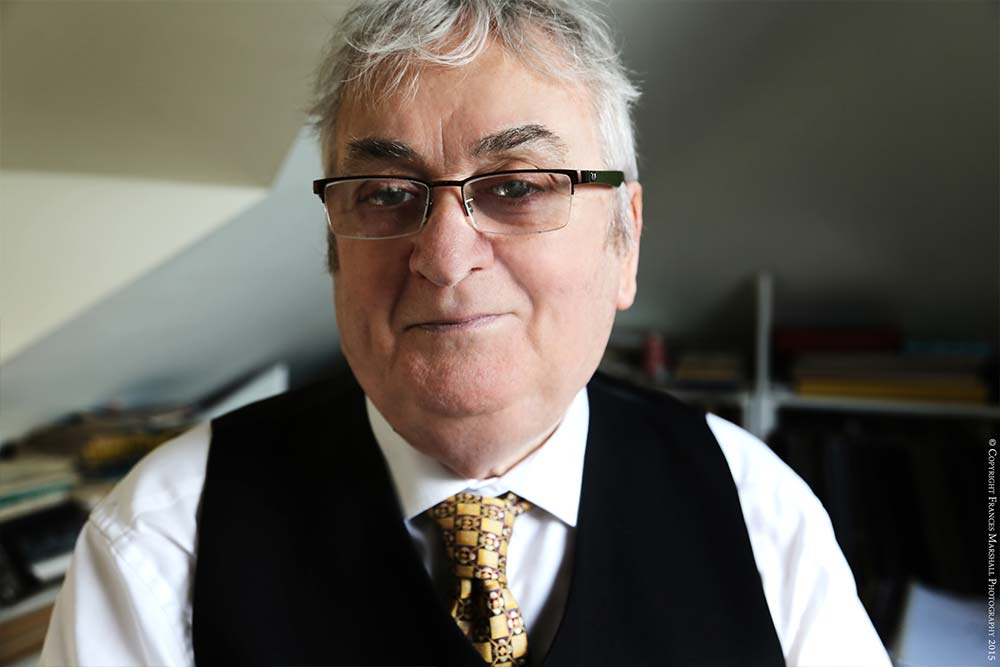


It is marvelous to have a very learned and intelligent partner who can discuss multiple aspects of music with me..."

Having such an innate affinity with the world of literature, is there a particular poet/writer that speaks to you?
From early on in my teens I involved myself in literature and read extensively French, Russian and other authors. Guy de Maupassant’s short stories, Flaubert’s Madame Bovary…the main works of Turgenev, Dostoyevsky and Anton Chekov were a part of my education, but in my private reading, not in school. It certainly widened my vision of the world.
Do you have a system/routine for composing, or is it an ever-evolving process?
You are right, it is an ever-changing practice. It depends on what I am attempting to realize.
Today, what serves as your muse?
In recent years I have been writing song-cycles and the poems are central to my work. Goethe, Seamus Heaney, Brendan Kennelly, Colm Cille, Micheál Ó’Siadhail, Christina Rosetti, the ‘Faust’ songs of Goethe set by Schubert (with the exception of ‘Meine Mutter die Hur’ which I set but Schubert did not). It was my wife, Lorraine, who introduced me to Goethe’s Wilhelm Meisters Lehrjahre. I read it in the German original, and it provided me with a new experience of the great German master. My wife has had a large influence on discussions and the consideration of music history and music in our house. It is marvelous to have a very learned and intelligent partner who can discuss multiple aspects of music with me — as one would expect where a highly prolific musicologist is in residence.
Over many years I worked with Bernadette Greevy, both as composer and later on as accompanist. I also worked with the mezzo-soprano, Aylish Kerrigan, and indeed we performed my works on tour in China. To have seen China before it was fully modernized was quite an experience. Our tours and performances together extended to many European countries: Germany, Austria and Macedonia (Skopia) spring to mind. I have also had the delight of accompanying that fine tenor Ian Partridge in a concert of Schubert songs in Trinity College, Dublin on my 70th birthday in 2003. In more recent times I have performed my own songs with the first-class soprano Sylvia O’Brien, and that equally fine singer, mezzo Imelda Drumm.
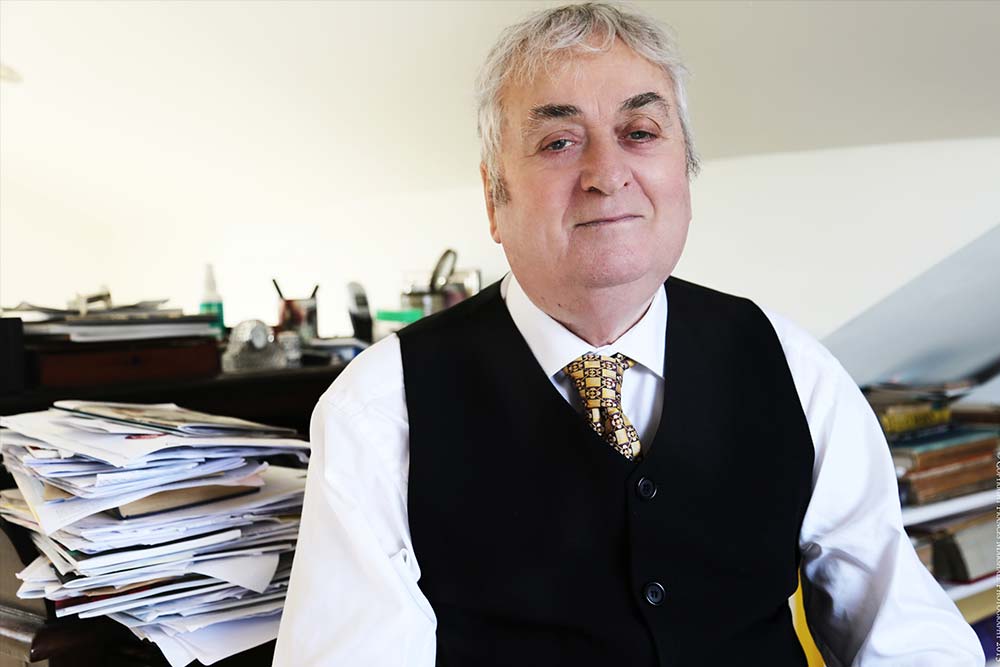


Do you ever suffer from ‘writer’s block’, and if so how do you deal with it?
I don’t think that I suffer from ‘writer’s block’. Once I start, the music I write follows from the opening. Within the last year I have written a piano trio for the Fidelio Trio. It received a stunning performance in St Patrick’s College, Drumcondra, Dublin, where the Trio was in residence. I also composed a work for harp solo which will be played by Anne Marie O’Farrell at the wedding celebrations of my son, Ruairi, to a lovely young lady from Malaysia, Lie Shien, whom we know as Leslie. Currently, I am also working on two song-cycles.
How do you know when the piece is truly ‘finished’ (if there is such a thing), and is it difficult to let it go?
I tend to go with the idea of a ‘feeling of rightness’ regarding the sections as I compose. When all the music and the balance between the sections feels right I call a halt to it.
Where do you write your music?
In the attic room where I have a computer with a connected musical keyboard. I feel quite at home working in this way. Our attic has been converted to create this working space and accommodate all my scores: a private archive of my manuscripts and recordings. Lorraine’s study is just below mine and both rooms are sectioned off from the house by a glass door. It allows us both a place to work within our home.
In general I lead quite an artistic life, spending many hours reading; the novels of Colm Tóibín and John Banville, the short stories of Alice Munro, the Dean Swift biography Jonathan Swift: His life and his World by Leo Damrosch, Nelson Mandela’s autobiography Long walk to Freedom all figure in my reading over the past year. In addition Internet radio is frequently playing music in our home, but not when I am working. I have also viewed some of the symphony concerts and operas available on Sky Arts 2. So, all in all, there is quite a flow of arts in my life at home.
Do you still enjoy playing the piano, and if so what’s currently on your music stand?
I still enjoy playing the piano. Currently the music on the piano is the two books of the ’48 Preludes and Fugues’ of Bach. Was there ever music so well-balanced and with such a sense of order!
While I am on the subject of things lying around the house, may I mention that our very large glass conservatory table has on it two books of short stories by Alice Munro (Runaway and Lying under the Apple Tree), Eugene McCabe’s Death and Nightingales, Colm Tóibín’s The Master, John Banville’s The Untouchable, and lying on it the last book I finished: The Bell Jar by Sylvia Plath. That is a most exceptional book and I really appreciate the vision that inspired her to give it this title. To describe life as cut off by an encircling glass wall will be familiar to anyone who has ever suffered such an experience of alienation.
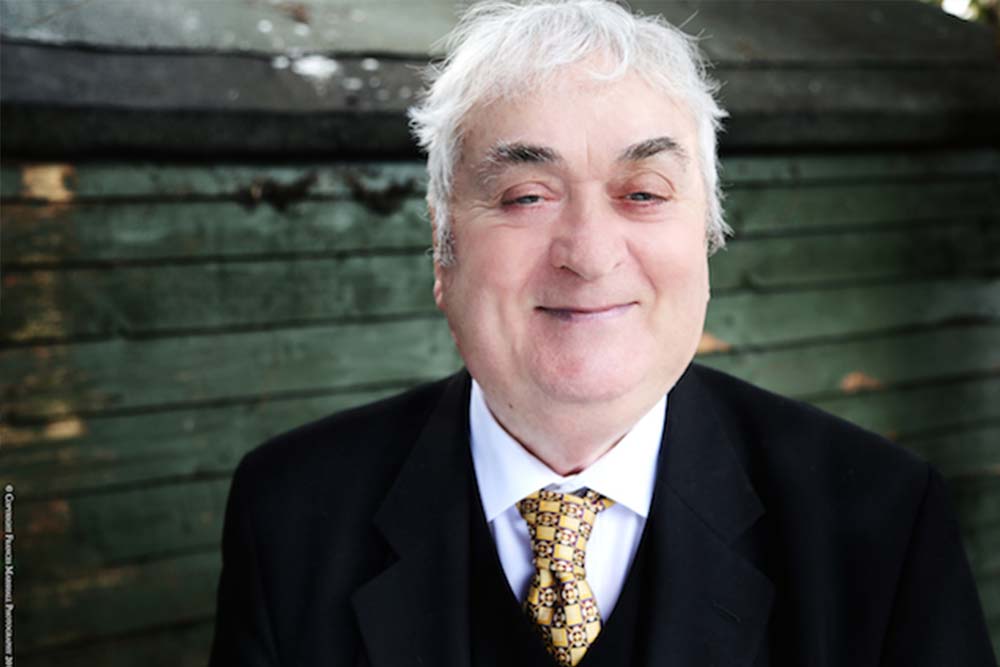

When looking back at your earlier works from the 1950s and 1960s what do you see, and is there an element of that version of Seóirse retained in your works of today?
Certainly there is a strong connection between my earlier music and my music today: a continuous musical voice is present despite changes of musical style.
How have attitudes towards classical music in Dublin changed over the past 50 years?
These have changed since the advent of the National Concert Hall. Conductors are no longer totally free to put new music from their own country into the programmes. In general a combination of marketing, pressure to sell seats and recessions have together meant that there are less commissions for composers. Ireland also has a tendency to privilege the literary arts over the musical arts.
As a composer, what are your views on the voice of the critic?
It all depends on what you mean by ‘critic’. Personally I am more at home with musicologists, who tend to think of their criticisms as neither essentially negative nor positive, but rather as what follows from their deep analyses and consideration of the works and their background.
What draws you to the Irish language, and how important is it for you to celebrate your identity as an Irish composer?
I do admit to being drawn to the Irish language and acknowledge that I do in some works celebrate my identity. Publically, my Irish identity shows in my being a Saoi of Aosdána, or being commissioned to write the opening work in the first programme of the National Concert Hall. I have used references to Irish traditional music in a number of my works arising from my knowledge of that music, but other experiences connect me to other countries. On the one hand I am a fluent Irish speaker, on the other I am a fluent German speaker. My general experience has included two years of study in Stuttgart, Germany. A knowledge of the language was very useful when I had performances, or gave interviews on German radio. My periods away from Ireland have included travels across Europe, in China, Japan and Russia, and I have spent time in Canada. So my interest in Irish language and identity is that of one who has spent time abroad and is richly engaged with other cultures.
Are you a spiritual person, and how do you find balance in life?
I don’t know if I am spiritual, but I do occasionally practice meditation by mindfulness. This involves practices arising from Buddhism but separated from the Buddhist religion.
Gareth Cox’s illuminating foray into your personal and working life has garnered much respect — how did you find the entire experience, and were there moments where you felt exposed, or anxious?
I never felt that Gareth’s questions were intrusive or caused me any anxiety whatsoever. I realize that I have been blessed to have a book written on me and my musical doings while I am still alive. Mendelssohn never had during his lifetime such analysis of his music and musical life. Schubert’s first biography appeared forty years after his death.
Can you name some of the highlights and lowlights of your life so far?
Highlights of my musical life have been important performances such as my 3rd Symphony opening the National Concert Hall, and fine performances of my chamber music and songs. On a personal level the happiness of seeing my children and grandchildren brings me great joy. My life with Lorraine is of especial value to me.
Lowlights have been suffering twice in my life from clinical depression with an in-between period of some forty years or so of normal life.
What are you working on at the moment?
I am working on further song-cycles. For some time I have been studying the Italian language and I hope to set poetry in Italian in one of these cycles — a new departure for me.
All images displayed in this article are subject to copyright.
Share this article


